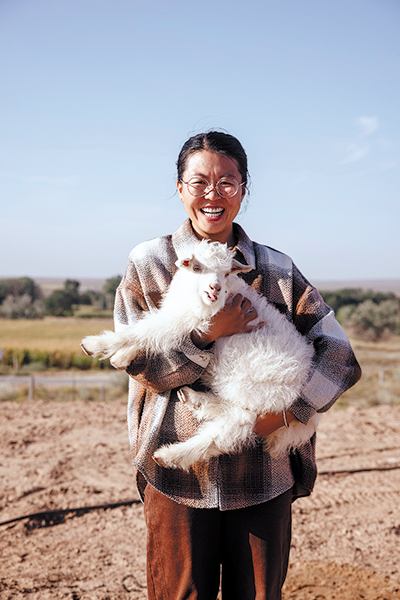Anthems weave together a collective soul
Villagers in Inner Mongolia autonomous region compose their life stories, rural customs and spiritual needs through new songs


These memories inspired Lyu, guiding her as she pursued her work. While attending a cultural event in 2018, she witnessed villagers singing and dancing with unbridled enthusiasm.
"I realized how deeply the villagers yearned for cultural activities," she recalled. "It was like seeing children longing for toys." Soon after, she joined the cultural station, determined to address this yearning.
But balancing her dreams with the realities of life proved a challenging task. In 2019, while pregnant, she frequently attended rehearsals with the local amateur art troupe, dancing alongside them despite her growing womb.
By July 2020, however, life became overwhelming. With a six-month-old child, a rented home, and a grueling 300-kilometer weekly commute between the city she lived in and the villages, she struggled to keep going. The pressures of her new role as a local Party official exacerbated her difficulties, culminating in a serious gastric illness.
"I felt completely helpless," Lyu said, facing the choice of staying in the rural area to continue her career or returning to the city for domestic life.
"I had professional knowledge but couldn't overcome my struggles, let alone help others." After leaving her child in her parents' care, Lyu sought treatment in Beijing only to find herself still mired in distress.
It was the villagers, with their songs and dances, who helped her heal. Singing alongside them, Lyu said she found solace and clarity. "I realized, this is my home. I am a child of farmers," she said, adding that helping the villagers fulfilled her.
With renewed purpose, she returned to the township determined to uplift her community. Even as cultural funding dwindled, she organized events, ensuring the elderly in particular had opportunities to participate.
The turning point came when Li Li, then mayor of Ordos, praised Lyu's initiatives. He emphasized that no matter rural or urban, residents need this type of cultural expression, Lyu said.




































